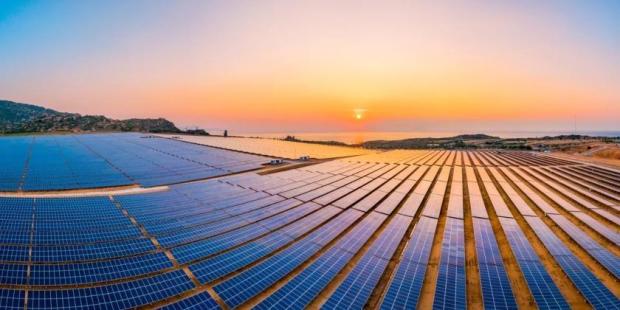ESG: once a “nice to have”; now essential

Key contacts
Not long ago, addressing environmental, social and governance (ESG) issues may have been considered a “nice to have”, but a mix of regulatory changes, commercial pressures and the emergence of more sophisticated investors, have made it essential. We asked CMS partners Horea Popescu in Romania, Alexander Rakosi in Austria, and Tetyana Dovgan in Ukraine, to explain what is driving ESG and why it matters when it comes to M&A.
Given the economic and financial headwinds facing business in 2022 and 2023, is ESG more or less of a priority?
Horea Popescu: “If anything, it becomes more important when the economic backdrop is more difficult. It is another differentiator that companies can use to set themselves apart and one that potential buyers factor into their assessment when they are considering potential targets.”
Alexander Rakosi: “I don’t think that today ESG is a subject that gets dropped down the list of priorities at the first sign of problems. I think it’s genuinely woven into the fabric of business and into M&A. It doesn’t get cancelled as a relevant factor because conditions might be more difficult. In fact, it can actually unlock possibilities for those who use ESG in a meaningful way and enable them to capitalise on opportunities. Adherence to ESG standards and attention to detail can accelerate business development and drive M&A.”
Tetyana Dovgan: “Clearly the war in Ukraine has had a huge impact on the Ukrainian economy and businesses, but we are learning to adapt to the new circumstances. Recently, ESG has become more important and companies have been adjusting to ensure they are compliant in advance of new ESG legislation. Moreover, they have continued to do so (including regarding future EU membership) even though the war has meant they now have to juggle their priorities.”
How has the climate for ESG changed in the last year?
Alexander Rakosi: “During 2022, our initial perceptions, and the indications on the market, that ESG was going to be a critical element in M&A matters have been confirmed. The trends have run in the way we expected, and if anything, the parameters in some industries have become a little clearer. We’ve seen this continued development in ESG in recent years as it’s moved from being a “nice to have” and something slightly cryptic, to a central piece in business, and in turn a quite relevant factor in daily M&A practice.”
Tetyana Dovgan: “If anything, ESG rose in importance in 2022 and faced probably its toughest test yet. In response to Russia’s invasion of Ukraine, many multinationals divested or significantly scaled back their activities in Russia. While some of this divestment was driven by sanctions, many global companies withdrew from Russia voluntarily, putting their value, purpose and commitment ahead of profit. Depending on the challenges that businesses had to deal with during the last year, the emphasis shifted between the “E”, “S” and “G” components, but overall the focus on ESG was there and it remained an important consideration in M&A activity.”
Horea Popescu: “Across all aspects of business and M&A, we’re seeing more and more focus on ESG. As each year goes by, it grows in importance and it’s fast becoming part of daily life to the point where everyone accepts it is something they have to be aware of and work with, and to make sure they are adopting the highest standards.”
What is driving ESG? Is it regulation, new ways of assessing risk, or commercial necessity?
Alexander Rakosi: “Businesses are faced with a need to be compliant on ESG from various angles, whether it’s regulation or the requirements of contractual counterparties. With government institutions, getting admitted into a procurement process—let alone winning a contract—will often require ESG compliance and even non-governmental organisations will also demand a certain level of compliance. For example, in September the EU passed regulations on the use of recycled plastics that come into contact with food, so this is a pretty big deal for the packaging industry specifically, but also in terms of how potential buyers calibrate their M&A strategy in that sector. Finding targets that are already ahead of the curve in meeting those requirements creates an interesting M&A story.
Horea Popescu: “Yes, recycling is a good example of an industry that has been made more attractive to investors because of the attention paid to ESG. It has become a growing industry in its own right, so the financial appeal is stronger, and at the same time, investors see an opportunity to grow their green portfolios. One area where ESG is top of the agenda is in fighting climate change. The EU is leading the world when it comes to initiatives directed at achieving a net-zero carbon future, through tighter regulation and reporting and compliance obligations.”
Tetyana Dovgan: “It is no longer a matter of companies getting their own ESG house in order; they must look across their supply chains, for example to understand environmental impacts. And it is not just regulatory and commercial pressure. Employees also want to see evidence that their employers have high standards, and those companies that do so will find it easier to recruit and retain staff. Geopolitical issues are also rising on the ESG agenda, leading to investors reassessing their ESG approaches and in particular the safety and sustainability of the investments made in countries with authoritarian regimes.”
Private equity has become increasingly influential in emerging Europe. How important has it been in spreading awareness about ESG and in stimulating better practice in business?
Horea Popescu: “Private equity has been enormously influential across all aspects of the business world in the region. It’s been a very influential force in raising standards in business, not just in making profits and improving their balance sheets, but helping them to meet their environmental and social obligations.”
Tetyana Dovgan: “ESG is gaining traction across all sectors and industries, and a big part of that is the increasing role that private equity plays as pioneering business owners and as potential acquirors. Those companies under private equity ownership can tap into their expertise to improve ESG standards, while those looking to sell to private equity know that it is an area they must address.”
Alexander Rakosi: “For private equity buyers, ESG is a big part of their assessment of acquisition opportunities and it adds an element of growth potential. If ESG is underdeveloped at a business, it might put off some potential buyers. At the same time, you could have a private equity firm that sees an opportunity to combine it with something more ESG compliant and drive standards up. Where the seller feels unable to devote more resources to this, but PE sees an opportunity, you have a situation where both sides could potentially benefit.
“If you look at private equity, investors demand that private equity funds invest in businesses that comply with certain standards, and they in turn look for businesses that are ahead of the curve. PE is fairly sophisticated — it’s not just about providing financing; it’s also about bringing in knowledge and expertise.
All sectors have to take ESG into account, but are there any that make it a higher priority?
Alexander Rakosi: “There are no sectors that can afford to ignore ESG considerations. Energy is a sector where ESG is a number one priority because it is at the heart of the drive for a better environment. In financial services, regulation demands that, e.g. financing is ethical, such as the focus on anti-money laundering and making finance more widely available.”
Horea Popescu: “Energy is a critical area for ESG. On one side, there is a disincentive to invest in oil, gas and coal, those polluting industries and how we navigate away from them, and on the other, there are renewables as a target for investment. I think this sector is going to be the target for M&A and it will be a focus for ESG.
Are there any countries that are ahead of the curve?
Alexander Rakosi: “Generally, EU countries tend to be slightly ahead of the curve because of EU initiatives and legislation, but so too are those that are more internationally focused, where international investors bring with them expectations of higher standards. For example, in the Balkans, Romania, Croatia and Slovenia are making ESG topics more of a priority. However, Serbia is probably in absolute terms not as developed, but on the flip side it has more potential for growth for investors who go into it.”
Tetyana Dovgan: “Yes, the EU member states continue to lead on ESG. At the same time, 2022 saw more attention on Ukraine and the wider emerging Europe region, including from the ESG perspective. For some businesses in Ukraine, ESG is not necessarily the number one priority at the moment, as they have to cope with disruptions caused by the war, frequent blackouts and other everyday problems. The “E” component of ESG seems to have been temporarily pushed to one side in some countries as their governments fight the effects of the energy crisis resulting from the war. However challenging, this time is an opportunity for the whole region to rethink and adopt new ESG practices for a more sustainable future, and for Ukraine in particular to lay the foundations for the ‘build back better’ recovery.”
How important is ESG in M&A and to what extent is it becoming a driver of deals?
Tetyana Dovgan: “ESG now shapes virtually all investment decisions in one way or another and is increasingly becoming relevant in the deal-making process as in any other commercial aspect of a deal. While most investors only take into consideration ESG risks in their activities (and we see now more frequently than before cases of enhanced ESG review as part of M&A processes), the percentage of deals where ESG becomes a primary driver is gradually increasing as well.”
Alexander Rakosi: “It gives sellers evidence that they can provide to buyers about the attractiveness of their business and its growth potential. It doesn’t trump everything else, let’s not go that far, but it is a pretty relevant factor. ESG is not a single line item, but it pops up on various fronts. It plays a role in several of the main pricing considerations, not least in the viability of the business plan and assessing growth potential. It’s factored into various sub-categories of a buyer's assessment of a transaction opportunity.
Horea Popescu: “It’s not judged in isolation; it’s part of the overall picture and part of how companies assess risk and mitigate for it. Rather than have a single ESG expert lawyer, we use a combination of lawyers from different practices who in turn can draw on external experts when needed. It’s possible to see how W&I insurance (see the separate section on W&I insurance in this report) will evolve to offer cover for ESG issues to provide security to both sides of a transaction.”
How do you see ESG developing in 2023 and beyond?
Alexander Rakosi: “ESG is going to continue to play a role in M&A deal-making not just in the short term, but in the medium and long term as well. For those working in M&A, ESG has become more tangible and part of our daily lives. This applies to due diligence considerations and in the context of transaction agreements, e.g. the buy-side seeking comfort and protection from certain risks in the form of reps/indemnities/CPs etc. In the CMS European M&A outlook 2022-23 report, around 90% of respondents said they expected scrutiny of ESG issues in deals to rise in the next three years—a sharp rise on the previous year. Emerging Europe has been part of this trend and will continue to be so in the future.”
Horea Popescu: “Those companies that don’t keep up with developments in ESG are going to get left behind, so whether or not there is a regulatory imperative, there is a real commercial incentive for them to adopt the highest standards. The same goes for individual countries. We see ESG spreading because unless countries respond, they risk being overlooked by international investors.
Tetyana Dovgan: “ESG is already an important part of the mix for some sectors and this will only increase in time. A few years ago, businesses and dealmakers may have been able to ignore ESG, but that is no longer the case. They will also have to make it a much higher priority in the future as ESG becomes a deal driver in its own right. Striking the right balance when it comes to ESG in deal-making will also be essential. Too little focus on ESG entails unnecessary investment risks; on the other hand, too much focus may result in unjustified time and cost spend, and may even kill the deal. Investors will need to refine their ESG strategies to factor in the lessons learned from previous years as well as the challenges brought to the region by Russia’s war against Ukraine. Assessing geopolitical risks and re-evaluating investments in countries with authoritarian governments will also continue to rise in importance.”
Further reading:
Interview with

Horea Popescu
CMS Partner




.JPG)


.jpg)
.jpg)


.jpg)


